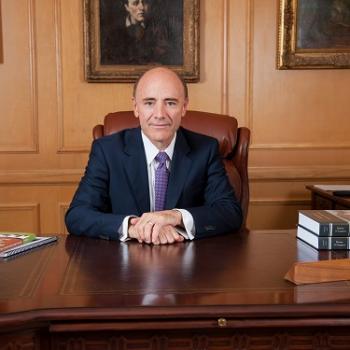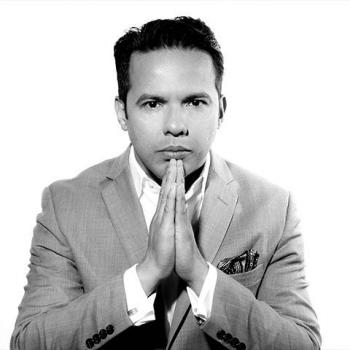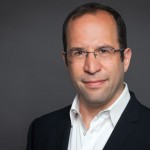As I had lunch with a new friend who is highly involved in the political scene of our city, he told me something that is a stereotypical view of Hispanic Evangelicals. He said that some of his colleagues who were Democrats thought he was having lunch with a Republican when he told them he was having lunch with a Hispanic Evangelical pastor. For those who may not be aware of this, what my friend heard is a typical reaction by many to one of the words in his introduction of me. That word is Evangelical.
It’s no secret; in some minds Evangelical and Republican go together, no exceptions. This is usually done in political, academic circles, and mainstream media. So to be an Evangelical or “evangelico” is to belong to a political party or a particular social worldview and what they represents no questions asked. This myopic view of Hispanic Evangelicals is unfortunate because they aren’t given much chance of demonstrating their rich and deep qualities. In the U.S., the term Evangelical has been associated with a political ideology for so long that when an “evangelico” makes his or her appearance on the scene; he is assigned an identity, conservative. All the while, as an “evangelica”, she is unaware of this prejudice against her simply because in the lexicon “evangelico” translates to the English word Evangelical and no more. Naively unaware that they have been only translated and not engaged, “evangelicos” now have an assumed identity christened by a mainstream ideological world that has cornered them in such a way that they have been cast on to the heap of an ideological identity without their knowledge, or even worse, their consent–Guilty until proven innocent.
On the other hand, the term “Hispanic” is an adjectival identity, as Kenneth G Davis uses to describe them, which have doubly burdened “evangelicos”. Because they are “Hispanics” in the U.S., they all should look at life with a particular traditional worldview, Hispanics are supposed to be only Roman Catholic, uneducated, undocumented, gang-members, and other juvenile stereotypes. Politically, “evangelicos” are also assumed to be of the same opinion as the majority of all other Hispanics in this country. So, they all must (should) be Democrats, right? To be sure, many Hispanics in the U.S. are aligned with the Democratic Party. But, this does not mean that all Hispanics are Democrat. There is a growing number of Hispanics who are not Democrat, whether U.S. born or immigrants. And if they were, they are now becoming critical thinkers and are stepping back to reconsider their positions. They are not flocking to the Republican Party, but they are neither staying with the Democratic Party. They are beginning to inhabit the “independent” ranks because they are now reflecting on their own worldviews and recasting themselves into this new identity; a leading voice of justice and righteousness.
The reality is that the term Hispanic does not define the Hispanic “evangelico’s” ethnicity or culture; rather, from the moment they decide to become followers of Jesus Christ, they now identify themselves not only with their God-given ethnic group or culture but as born again citizens in a different Kingdom in Christ, God’s. This is beginning to reflect both in their daily lives and their voting trends.
So, how should society understand who this rising segment of the population is? Well, here is a primer on “evangelicos.”
First of all, to be an evangelical “evangelico” (pardon the redundancy) is not an ideological identity. For, we neither inhabit the land of the Donkey nor the enclosure of the Elephant. We neither embrace the post-modern gospel nor hold on to a fundamentalist dogma. We inhabit the pastures of the Lamb. To wit, we as “evangelicos” are first and foremost men and women who have had had an eternal transformation when the Gospel/Evangel of Jesus Christ or the “Evangelio de Jesucristo” changed our lives. We call that conversion. This transformation gave us a new identity. We now belong to the Gospel/Evangel. And because we belong to this message of “good news”, we are now “evangelicos”, the people of the good-news. We now defend an agenda; forged neither by a political party’s platform, nor an academic consortium, nor a government’s social master plan. It was not birthed in this millennium; it was actually birthed in the first century by the Gospel. The Gospel is the definitive text that “evangelicos” follow. Here in lies their worldview. It’s timeless. It serves them well as they navigate the challenges that a post-modern world faces. Because they are grounded in this, they are viewed as non-conformists. Yet, this is not new for Christians who follow a biblical worldview.
Secondly, the ideals “evangelicos” defend and promote, aren’t based on the winds that move the social meter. They are based on the principles found in the faith that has served Christians well for hundreds of generations. This faith is grounded on the bedrock of the New Testament. These ideals, some radical on any given age, may align at times with the ones championed by the liberal ideology of today; while other ideals cherished by “evangelicos” are defended by today’s conservative philosophy. Ideals such as family, education, social justice, Biblical morality, fairness, the poor, righteousness, and racial equality are cherished by “evangelicos” because the Gospel cherishes them not because a political ideology supports them. As individuals, they were in need of all of these at one point, and know that in the Gospel they found their way out of all of them. Their liberation came, not in the form of a handout nor by rugged individualism, but rather by God’s mercy and grace.
Thirdly, “evangelicos” aren’t seeking the easy way but are seeking a place at the table. They are not pawns when it comes to self-determination or institutional aid. They are not poster children of a political party. They are not just a panel in the tapestry of diversity. They understand that the role of society is to give a person an opportunity to find his God given destiny while at the same time allowing him to become all he is meant to be. All of these are pursued under the rule of Scripture. He is not just a passive recipient of society’s goodwill because he needs it, but an active participant in the forging of a better world in which he lives. He is a contradiction, he know what a liberal ought to do and what a conservative must defend, because he walks alongside the Lamb. The “evangelica” might not be a leading voice yet, but that is only because she is still finding her footing. But do not be confused; the “evangelico” will impact this nation, because he knows he has a calling. This call is simple; to neither serve the Donkey nor the Elephant, but the Lamb.











